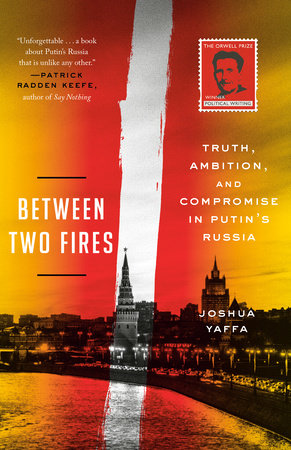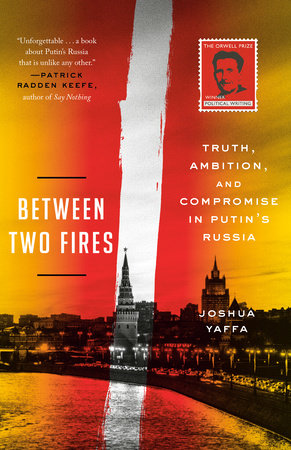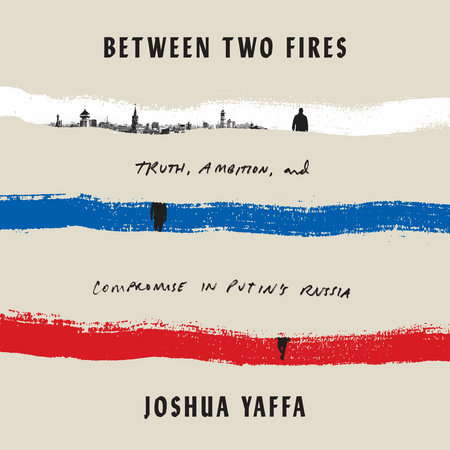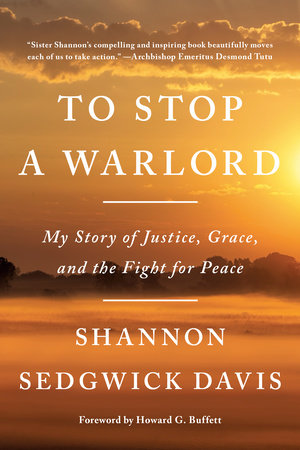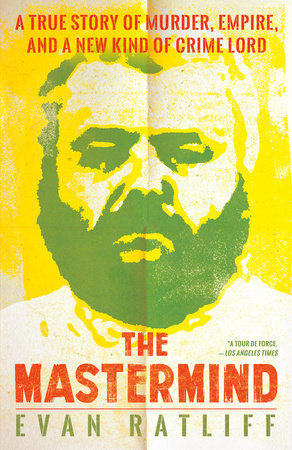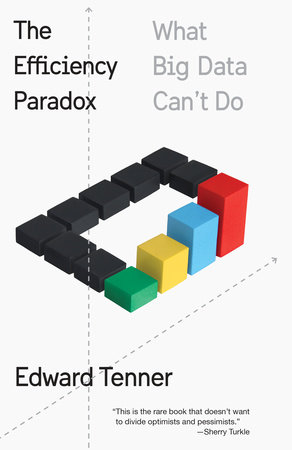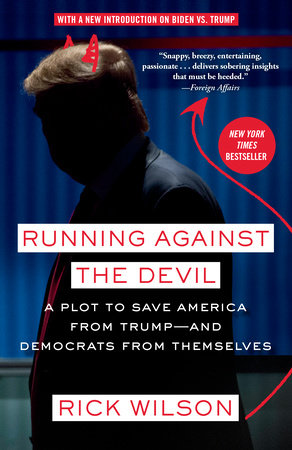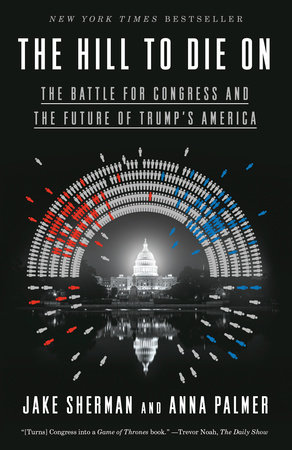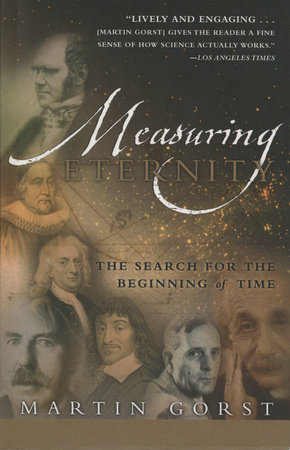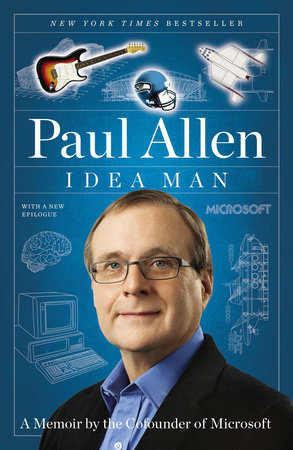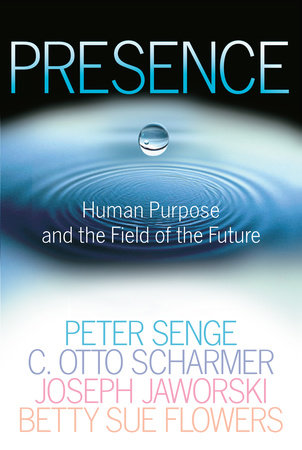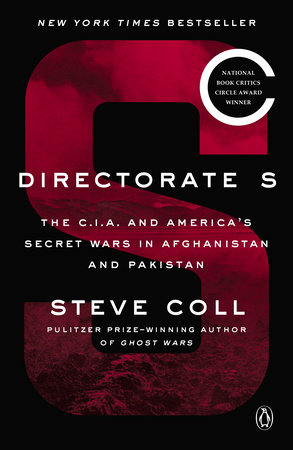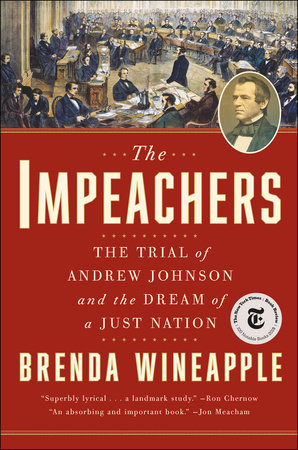Author Q&A
A Conversation With
Joshua Yaffa
Author of
BETWEEN TWO FIRES
Truth, Ambition, and Compromise in Putin’s Russia
Tim Duggan Books; January 14, 2020
Q: One of your profiles focuses on a Crimean entrepreneur who despised living under the inefficient, corrupt Ukrainian government. How did government corruption under previous presidents play into the election of President Zelensky, and do you think this affected his approach to interacting with President Trump?
A: Over twenty-five years of independence, Ukraine never managed to overcome a culture of corruption, both on the local, petty level (tax inspectors sticking their hands out for bribes) and at the very top (presidents who engaged in cozy back room favor trading with oligarchs). The country voted in one president after another, and even was the site of two revolutions, but corruption remained endemic, which not only held back development, but led to a curdled sense of disappointment and frustration among its citizens. In the book, I describe the entrepreneur in Crimea, Oleg Zubkov, the owner of a popular safari park, and what he was thinking on the eve of the peninsula’s annexation, in 2014: “He thought of Crimea’s potholed roads, its closed and decaying factories, and all the government officials who, instead of helping him develop his parks, had only stuck their hands out for bribes. Modern Ukraine had become a country where ‘bureaucrats don’t know how to create anything, only steal, and presidents think it’s okay to build their personal dachas in national parks.’” As it turned out, life under Russian rule proved no better; in fact, as far as Zubkov was concerned, quite the opposite: running his business became even more difficult, oftentimes to the point of Kafkaesque absurdity. When Zelensky appeared on the political scene as an outsider candidate, he tapped into these feelings of neglect and desperation, a notion among many Ukrainians that we’ve tried this party, and that leader, and then this president—and yet corruption remains as entrenched as ever. His lack of political experience became a virtue. He was elected with a mandate to overturn the normal rules that governed Ukrainian politics, to be a disruptor, and hopefully once and for all impart a sense of honesty, justice, and accountability to the country’s political life. One of Zelensky’s main priorities is ending the war in the Donbass, a conflict I write about in detail in the book, and for that he needs the support of Western powers—as he initially hoped, the United States, above all. That put him in an awkward, perhaps impossible, position when it came to requests and pressure from Trump.
Q: You have been based in Moscow for the past eight years. How does your extensive time living in the region affect your perspective on the impeachment hearings and Ukraine’s part in the story?
A: A number of discouraging pathologies that we’re starting to see in American civic and political life—lack of a shared truth, cynical distrust of motives, attacks on the independence or legitimacy of political institutions—certainly feel discouraging familiar, as they’ve been part of the Russian political scene under Putin for some time now. I don’t think they “came” from Russia in any sort of direct or purposeful way, but rather, and unfortunately, we as a society have drifted in that direction largely on our own. In the chapter of my book on Channel One, the state television channel, I write of how the network’s “information programming has the effect of nudging the viewer toward believing nothing at all, to becoming so overwhelmed and exhausted by the information onslaught that she simply throws her hands up. Truth becomes a matter of theories and guesses over ‘Who benefits?’” I think a lot of American news consumers (especially those who watch cable television) could find something recognizable in that description, which is not particularly healthy or promising for the state of civic discourse. And perhaps most fundamentally, the notion of compromise and “wiliness” have come to feel very familiar in today’s Washington. Especially inside the Republican Party, we’ve seen all manner of politicians, officials, ideologues bend the values that once motivated them in service of the current agenda, which, on the Right, is effectively dominated by Trump. Some think that staying inside the system is better than being cast out, at least from inside they can keep an eye on things and prevent the worst abuses; others are seeking their own political advantage and power, and know that opposing Trump would be a one-way ticket out of office. Those are phenomena that look quite familiar and remind of the dilemmas and processes that I write about in my book.
Q: The individuals you profile have a wide range of jobs and level of influence in Russian society: an Orthodox priest, an entrepreneur in Crimea, and a historian of the Gulag, to name a few. Why did you choose these particular people?
A: I wanted to achieve as much of a representative cross-section of Russian society as I could—my aim was to capture the Russia that I had come to know over the years, with a rich and diverse and often contradictory mix of social groups and categories. As I say in the book, most people in today’s Russia are neither Sakharov (heroic dissidents) or Stalin (cruel tyrants); it was that huge group in the middle that I wanted to render as fully-formed characters, while touching all the main aspects of Russian life as I’ve come to understand it. Each of the characters represents a larger institution or facet of society that are hugely important in the Putin era, from state television to the Russian Orthodox Church. Some have found great riches and success through the path of compromise; others have been less skilled at navigating those questions, and have paid the price, in some cases with their lives. All together, I hope the reader gets a real and nuanced portrait of the country, one that takes a wider and more humanistic approach than you often find in news coverage of the place.
Q: What is “The Wily Man,” and why is understanding him central to understanding Russians today?
A: The idea of the “Wily Man” was thought up by the Russian sociologist Yuri Levada in the early 2000s. He was searching for an explanation for why many of the habits of so-called Soviet Man—doublethink, cynicism, the combination of lack of trust and faith in the state and a resigned loyalty toward it—had proved so persistent, and were in fact reproducing themselves in post-Soviet, nominally democratic Russia. I came across Levada’s essay much later, but it immediately held great explanatory power for me: it functioned like a master key, unlocking and explaining the behavior and actions of so many people I had met in my life and reporting. These were people who were not necessarily enthusiastic Putin supporters, or even people who voted for him. Instead, they treated the Putin state as a given, neither good or bad, but simply there, like an element in the earth’s atmosphere—and then went about constructing their lives around it. Those were the kinds of people I wanted to write about. I wanted to understand their ambitions and motivations and compromises, and Levada’s original idea proved a helpful lens.
Q: Where does the title BETWEEN TWO FIRES come from?
A: There is a Russian saying “mezhdu dvukh ognyei,” which literally means “between two fires.” It describes the condition of being stuck in the middle of two opposing forces bigger than yourself. Making it out the other side is just about the best outcome available. I found it captured the idea that oftentimes there are no good answers to the question of how much a person should bend or compromise in search of some otherwise virtuous aim. Essentially all the characters whom I wrote about all started with goals we would recognize and find compelling and understandable—what varied is how far, or not, they were willing to compromise with the state to fulfill them. In that sense, I found that many ended up stuck “between two fires,” a state of being in the world that I found extraordinarily compelling, and also instructive for making sense of Putin’s Russia.
Q: How did you conduct your reporting for this book?
A: In a way, I’ve been collecting material for this book over the last seven or eight years, the time I’ve been living in Russia and working as a journalist. But the idea really took shape three or four years ago—that’s when I encountered Levada’s “Wily Man” essay and came to use that concept as a prism for looking at Russia and making sense of it. Then it was a question of finding the right characters. A few of the people in the book I had come across before, but a lot of them were totally new to me. The main resource and tool in reporting the book was time: it took time to figure out which people had lived through, or were living through, the kinds of dilemmas and conundrums that interested me, and even more time to get those people to open up and share their own thoughts on the choices and compromises they have made. So there were many hours of interviews, not just with the main characters, but with their friends and colleagues. In the cases of Pavel Adelgeim or Elizaveta Glinka—both of whom sadly died before I ever got a chance to meet them—I spent a lot of time not only with those close to them who are still around, but with their bodies of writing. Both were prolific essayists, or diarist in Glinka’s case, and I felt like I got to know them by immersing myself in what they had written while alive.
Q: Towards the end of the book, you describe talking with those in the generation who were born after the fall of the USSR, and who have lived almost their entire lives under Putin’s rule. How does this generation differ from previous ones? What does this mean for Russia’s future?
A: This generation—oftentimes called the “Putin generation”—really has known no other ruler or political system. They aren’t necessarily revolutionary, oftentimes quite the opposite; many members of this generation have done quite well in the Putin years, they have grown up in a stable country with rising incomes and opportunities for education and travel. I don’t sense a sharp urge among the majority of this cohort to dramatically rock the boat. But I do find that this Russian generation tends to be more open, worldly, trusting, and earnest than those that have preceded it. And no less important, they have a whole different universe of foundational events; or rather, the dissolution of the Soviet Union and the trauma of the 1990s may exist as stories they heard from their parents, but not as things they lived through themselves. They’re less traumatized—which, in a way, makes them less prone to the kind of “wiliness” Levada described. I don’t necessarily think they are guaranteed to mount a political insurrection, but as they come of age they will most certainly inject a different set of values and priorities into the civic and economic life of the country.
Q: You show the intense compromises the Russian people have to make to not only find success and accomplish their goals, but even to survive. Why is it so important for us to understand this?
A: One idea I felt like I was bumping up against again and again was the dichotomy of the oppressed and the oppressor—that the most accurate and useful way of understanding Russia was to think of Putin the dictator and the people he oppresses. That’s all very true, there are of course no small number of cruel and venal state officials, just like there are no shortage of brave people who stand up to them, and often pay the price for it. But even with those two groups you only capture a small, and I would argue non-representative, slice of what is actually going in Russia. It’s all the people in between, who make all manner of compromises with the state, that actually give the Putin system its durability. You can distrust the state, and recognize its many failures and even underlying corruption, but when it comes to realizing your ambitions, or even reaching a certain position of safety or stability in society, it’s the only game in town. Ultimately, it’s like I write in the closing lines of the prologue: “I became convinced that the most edifying, and important, character for journalistic study in Russia is not Putin, but those people whose habits, inclinations, and internal moral calculations elevated Putin to his Kremlin throne, and now perform the small, daily work that, in aggregate, keeps him there.”
Q: As a Western writer, what do you think is the most important factor Americans need to understand about Russian society?
A: In one word, it’s complicated. By that I mean the relationship many Russians have to the Putin state. It’s not as simple as love or hate; it’s oftentimes more about making do, looking for your own advantage, making a compromise in search of a greater aim. And that it’s not so easy to declare yourself pure and sit off on the sidelines. It’s like one person told me about why the widely-praised director Kirill Serebrennikov, one of my main characters, would have allowed himself to grow close to certain figures from within the Kremlin apparatus. “You don’t have a choice between making a film with state participation or without,” the person told me. “The question is: Do you want to make a film at all?” Much of Russian cultural life is dependent on state funding for its existence; that is especially true in the dramatic arts, as nearly all of the country’s more than six hundred major theaters are state institutions, which rely on government support for seventy per cent of their budgets. Fund-raising and endowments largely do not exist. So the question is indeed not whether you take state money for your movie, but whether you want to make the movie at all. And if you decide yes, you do, well then you immediately face a whole series of dilemmas and compromises of the kind I write about. When you think about it that way, I think the sense of clarity and foreignness for an American reader—a feeling that this is something that could only happen there, and never to me—falls away, and you see how familiar and recognizable these conundrums really are.


